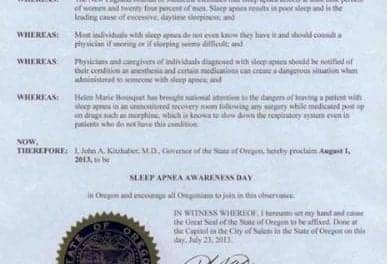Ventus Medical, maker of the PROVENT Sleep Apnea Therapy device, released additional data supporting the clinical efficacy of the product. Results from two clinical trials were presented at SLEEP 2010.
James K. Walsh, PhD, executive director of the Sleep Medicine and Research Center at St. Luke’s Hospital in St Louis, reported that patients using PROVENT Therapy had clinically meaningful and statistically significant decreases in the apnea-hypopnea index.
PROVENT Therapy was accepted by 80% of patients who had previously refused CPAP therapy or used CPAP fewer than 3 hours per night on average, a press release about the study stated. The study also found that PROVENT Therapy used improved blood oxygen saturation, and resulted in less daytime sleepiness as measured by the Epworth Sleepiness Scale.
"Current treatment options for obstructive sleep apnea are suboptimal. When used properly, CPAP essentially eliminates sleep apnea, but a large percentage of patients are noncompliant and express significant dissatisfaction with CPAP," stated Walsh. "These data provide evidence that PROVENT is a treatment option for many patients who were unable to tolerate or unwilling to try CPAP therapy."
Richard Berry, MD, from the University of Florida, reported results from another study. The results were from a multicenter, randomized, controlled trial of PROVENT versus a placebo (or sham) device. According to a press release about the findings, this study also showed that PROVENT Therapy significantly reduced AHI, improved oxygen saturation in the blood, as well as reduced daytime sleepiness when compared to the sham device.
"Many OSA patients are inadequately treated due to adherence or efficacy issues with current therapy. Alternative effective treatments for OSA are needed," said Berry. "The results of the study suggest that PROVENT Therapy is an effective treatment alternative for a substantial percentage of OSA patients."



